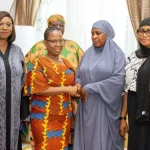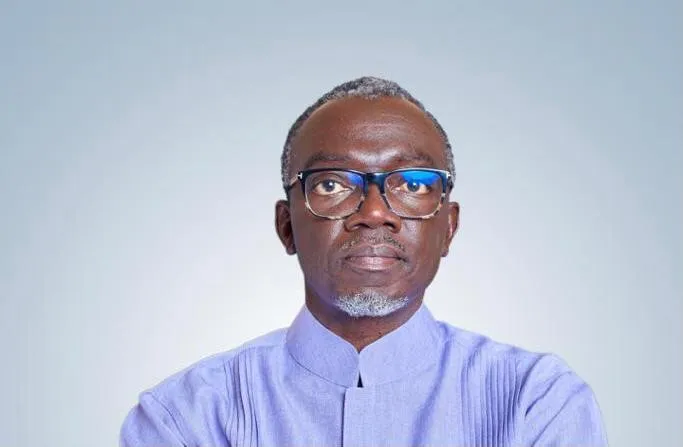In cultures such as Ghana where the concept of royalty holds immense cultural significance, children born into these families are raised with distinct cultural practices and expectations, setting them apart and instilling a strong awareness of their lineage and heritage from a young age, with their dreams and aspirations overshadowed by the desires and ambitions of those around them.
This stifling environment, while well-intentioned in its desire to provide guidance and stability, can often limit the individual’s ability to explore their interests and potential. From the moment of birth, such a child undergoes a series of protocol and grooming processes, ensuring they are prepared for their future role as a ruler.
These practices, often referred to as “royal rights,” encompass not only the child’s entitlement to inherit leadership but also their empowerment through education, training and mentorship.
Such education encompasses instruction in traditional customs, diplomacy, governance and unique cultural practices. Despite being raised with a heightened sense of decorum, etiquette and protocol, they also bear the weight of expectations and responsibilities inherent in their royal status.
Journey
Indeed, the journey towards realising one’s full potential is often fraught with obstacles. Children are frequently burdened with the weight of familial legacies that may not align with their passions and interests.
Over the weekend, I had the pleasure of listening to His Royal Majesty Otumfuo Osei Tutu II speak at his 74th birthday anniversary which also marks 25 years of his ascension to the Golden Stool as Asantehene, where he shared a captivating anecdote from his upbringing.
He revealed how his mother and uncle deliberately chose to keep his royal identity hidden from him during his formative years. This decision, though unconventional, was rooted in a desire to safeguard him from the pressures and expectations that often accompany royal lineage, unintentionally to him and intentionally to his uncle and mother, he was being trained for a role.
As I listened to his story, I could not help but reflect on the wisdom behind his parents’ choice. Otumfuo was entrusted to the care of his uncle. In a deliberate effort to shield him from the trappings of privilege and entitlement, his mother and uncle chose to nurture him in an environment devoid of the pressures of royalty.
Instead of revealing his destiny outright, they crafted a path, they put systems in place that would nurture his growth and prepare him for the responsibilities that awaited him.
Allowing him to revel in the simple joys of childhood, fostering a sense of curiosity and wonder that would later serve him well on his journey to the throne.
Even in his high school years, Otumfuo secured admission to Prempeh College. However, his uncle had other plans. Instead of Prempeh’s halls, Osei Tutu found himself enrolled in Sefwi Wiawso Secondary School.
Imagine a young Ashtown boy eagerly anticipating Prempeh, only to end up in a different school altogether. This shows that nurturing sometimes requires redirection. Indeed, as parents, caregivers or guardians, it is our responsibility to understand our children’s needs, aspirations and potential to help them steer their path, though it involves more than just steering a child towards a different path; it requires a deep understanding of their individuality.
It is about recognising that growth often occurs not in the comfort of familiarity but in the face of unexpected challenges. This reminds me of how God told Abraham to go to a land He the Lord will show him.
Takeaway
What was my takeaway from this story, you may ask? Well, it was a profound realisation of the significance of allowing children the space to simply be children. In a world often driven by ambition and expectation, the story of Otumfuo’s upbringing serves as a powerful reminder of the importance of preserving innocence and shielding young minds from the weight of adult responsibilities.
In the journey of parenting, recognising the inherent potential and future roles of our children is paramount. Just as a sculptor envisions a masterpiece within a block of marble, parents must see the future within their children and carve out pathways to facilitate their growth and development.
Child as royalty
Central to this process is treating your child as royalty. Each child possesses unique talents, strengths and potential that must be identified and nurtured. Just as a royal lineage carries responsibilities and duties, parents must discern what is needed for their child’s holistic development and create systems that revolve around their individuality.
However, the task of nurturing future leaders and innovators does not rest solely on the shoulders of parents. It indeed takes a village to raise a child. Society too must be willing to support this process. Schools, communities and institutions should align their efforts with providing environments conducive to the growth and development of each child’s potential.
At the heart of this endeavour lies the recognition that the journey to royalty is fundamentally a journey of service. True royalty is not defined by privilege or entitlement but by a commitment to serving others and making a positive impact on the world.
Values
Therefore as parents, we have to instil in our children the values of empathy, compassion and responsibility. We must treat our children like royalty. This entails not only recognising their potential but also putting in place support structures to develop them.
Otumfuo’s story underscores the wisdom in allowing children the freedom to explore, learn and grow without the burden of adult expectations. No wonder though he wills power in royalty, yet rules in simplicity.
As we celebrate his 74th birthday and 25 years of his ascension to the Golden Stool, let us reflect on his remarkable legacy and be inspired to nurture and raise the next generation with the same care, ensuring that they too have the opportunity to blossom into their fullest potential. Ɔdeneho!!! Okumkɔm!!! Ɔkogyeaman!!! Opemsuo, Wo Nkwa So! Long Live Otumfuo Osei Tutu II!!!
The Writer is the Executive Director,
Child Rights International.
















